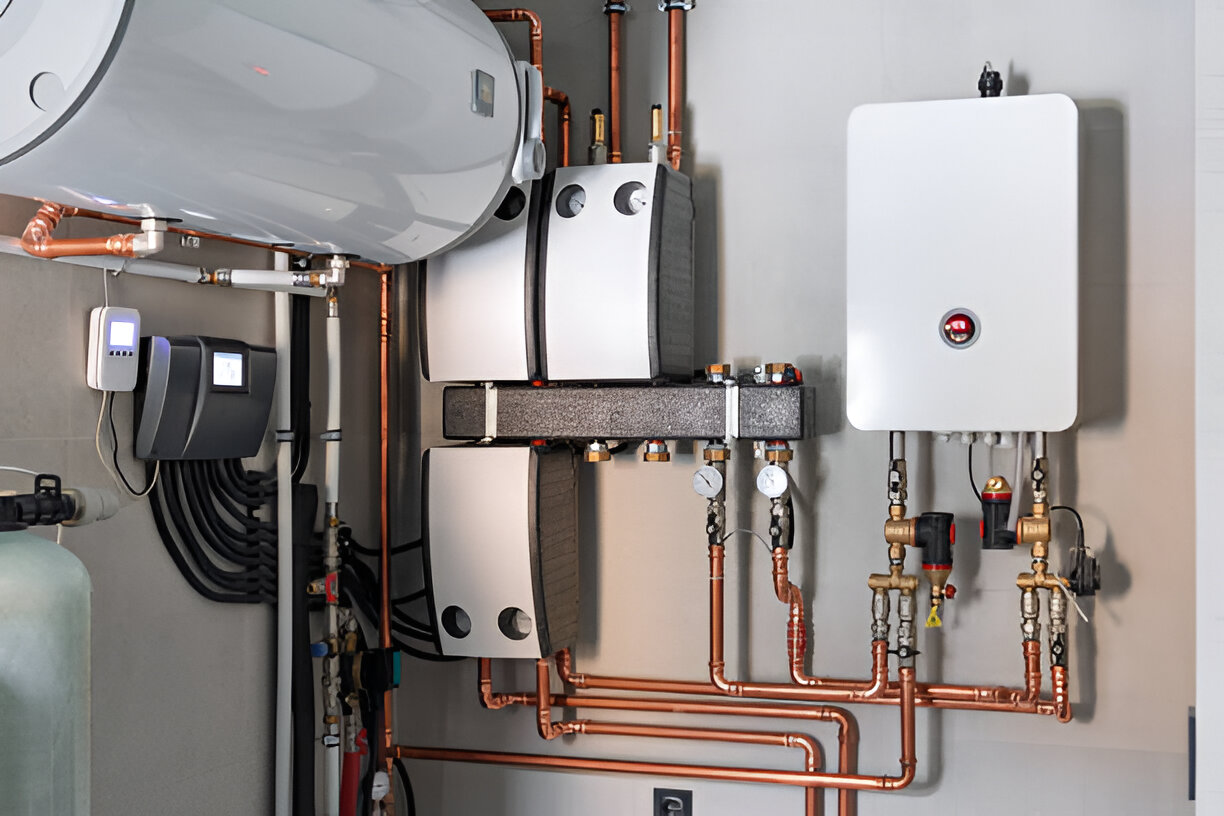
Furnace Maintenance in Wrightsville, PA
Keeping your furnace tuned and safe is essential for reliable winter comfort in Wrightsville, PA. With cold, sometimes prolonged winters and higher humidity near the Susquehanna River, local homes place unique demands on heating systems. Routine furnace maintenance reduces breakdowns, improves efficiency, and helps protect your family from safety risks like carbon monoxide exposure.
Common furnace problems in Wrightsville, PA
Homes in Wrightsville experience several furnace issues more often than places with milder climates. Typical problems include:
- Clogged or dirty filters: River-valley humidity and seasonal pollen increase the load on filters, causing restricted airflow and short cycling.
- Ignition and pilot failures: Age, soot, or worn components can prevent reliable starts when temperatures drop.
- Reduced airflow and uneven heating: Leaky or poorly insulated ducts in older Lancaster County homes can cause cold spots and strain the blower motor.
- Reduced efficiency and higher bills: Lack of cleaning and tuning lets burners and heat exchangers operate inefficiently.
- Corrosion and soot buildup: Humidity and combustion byproducts accelerate corrosion on metal components and flue pathways.
- Safety concerns: Cracked heat exchangers or blocked vents can produce dangerous carbon monoxide leaks if not checked.
Recognizing these problems early through seasonal maintenance prevents costly emergency repairs and helps keep systems running safely and efficiently.
What a routine furnace maintenance visit includes
A thorough maintenance inspection goes far beyond changing the filter. Typical tasks performed during a professional furnace tune-up:
- Visual inspection of the entire furnace cabinet, burners, and flue or venting system.
- Filter inspection and replacement or recommendation for the correct filter size and MERV rating.
- Combustion safety checks for gas or oil furnaces, including testing for proper flame, burner condition, and carbon monoxide levels.
- Heat exchanger inspection for cracks or corrosion that could create a CO risk.
- Ignition system and pilot assembly testing and cleaning.
- Electrical system check: tighten connections, test relays, transformers, and safety switches.
- Blower motor and fan inspection: clean blades, check belt condition or direct-drive operation, measure amperage and airflow.
- Lubrication of moving parts where applicable.
- Thermostat calibration and control system verification.
- Measurement of temperature rise across the heat exchanger to confirm correct airflow and performance.
- Inspection and cleaning of condensate lines on high-efficiency furnaces.
- Recommendations for repairs, parts replacement, or duct sealing if issues are found.
Each task is performed with safety and efficiency in mind so your equipment starts the heating season prepared for frequent use.
Recommended maintenance schedule for Wrightsville homes
A properly timed maintenance schedule maximizes protection and performance:
- Annual fall furnace tune-up: At minimum, schedule a full inspection and tune-up every fall before the heating season begins. This ensures safe startup and peak efficiency.
- Biannual service for older or high-use systems: Homes with furnaces older than 10–12 years, households with pets, or heavy-use homes may benefit from two visits per year.
- Filter checks: Check disposable 1-inch filters monthly and replace every 1–3 months depending on use and indoor air quality. Pleated filters and higher-MERV media may last longer but should still be checked quarterly.
- Ongoing monitoring: Have combustion safety or carbon monoxide testing done any time you suspect a problem (odors, soot, yellow burner flame, or unexplained health symptoms).
Following a predictable schedule helps catch wear and deterioration early and keeps warranty requirements intact for many manufacturers.
How maintenance extends equipment life and improves performance
Regular maintenance provides measurable benefits for your home and budget:
- Improved efficiency: Clean burners, correct airflow, and properly adjusted controls let your furnace deliver the intended heat with less fuel or electricity.
- Lower operating costs: Better efficiency translates to lower monthly heating bills during Wrightsville’s long heating season.
- Fewer emergency repairs: Routine checks catch small issues — loose wiring, worn belts, clogged burners — before they fail and cause breakdowns on the coldest days.
- Safer operation: Inspections identify cracked heat exchangers, blocked vents, and other hazards that can lead to carbon monoxide leaks or fires.
- Longer equipment life: Consistent cleaning, lubrication, and minor repairs reduce stress on major components, helping your furnace reach or exceed its expected lifespan.
- Better indoor air quality: Clean filters, proper airflow, and maintained condensate lines reduce dust, allergens, and moisture-related problems in your home.
For Wrightsville homeowners, these benefits matter because the local heating season is significant. Preventative maintenance minimizes interruptions when you need heat most and helps manage energy costs over the long run.
Benefits of ongoing maintenance plans
Maintenance agreements simplify care and add extra value compared with one-off visits. Typical plan benefits include:
- Scheduled reminders and priority appointment windows before and during heating season.
- Regular filter replacement options tailored to your home and filter type.
- Discounted rates on repairs and replacement parts.
- Detailed service records that support warranty claims and resale value.
- Peace of mind from predictable, professional upkeep.
A maintenance plan is especially useful for Wrightsville residents who want reliable winter comfort and fewer surprises from older homes or higher-humidity conditions.


Enjoy flexible financing options that make upgrading or repairing your HVAC system easy and budget-friendly.










